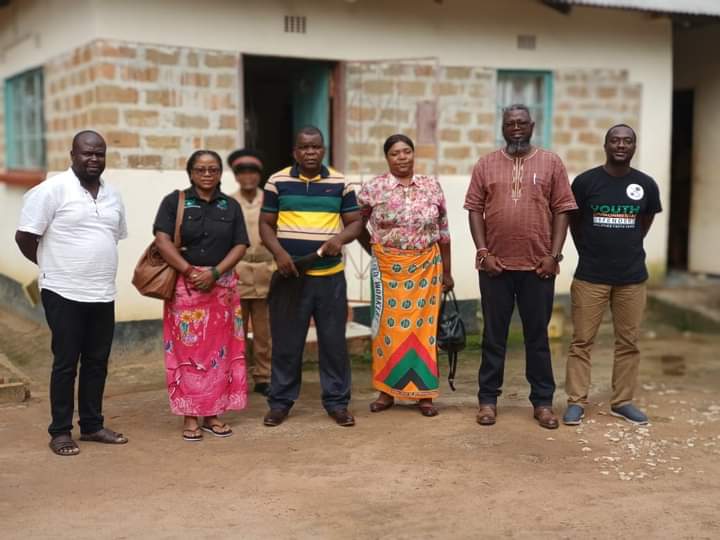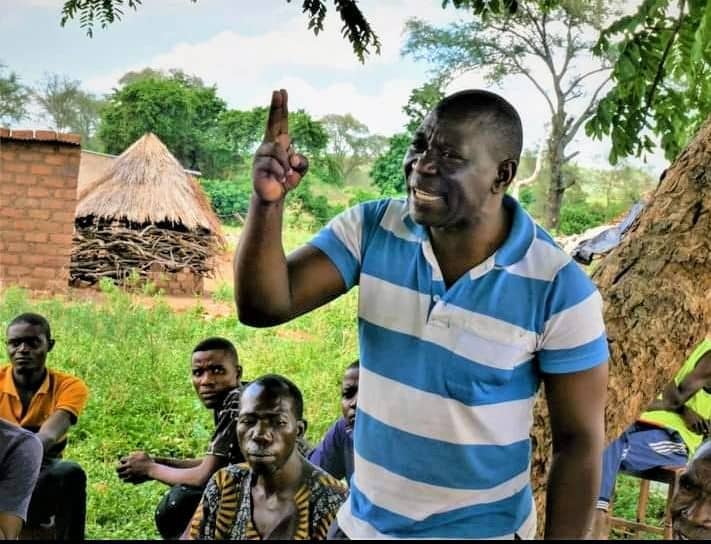Voices for Climate Justice and Natural Resources Governance (SAT)

Project Summary
Centre for Environment Justice with support from the Southern Africa Trust (SAT) is implementing the Voices for Climate Justice & Natural Resource Governance initiative. The project is focusing on two critical Interventions which are in line with the sustainable development goals (SDGs), especially SDG target numbers 13, 15 and 17, which puts sustainable development of natural resources and climate action at the forefront of the agenda for revitalising the economy while protecting the environment and promoting peace, justice, social stability, and harmony among people.
With a focus on natural resources, the project seeks to encourage dialogue and consultations to reduce conflicts in the management of natural resources in Zambia associated with policy and legal frameworks. The project takes cognisance of documented concerns that community management of natural resources particularly the role of traditional authorities and communities have been constrained by key institutional and governance barriers that limit their rights and access to the benefits from sustainable use and related enterprises.
It has been noted over time that traditional authority and community members are not consulted when it comes to utilization of natural resources in their designated localities and if at all they are consulted then its main issues have to do with access to the natural resources and not benefit sharing. Like many countries in southern Africa, Zambia has a long history of working to develop approaches to improve the management of natural resources including land, forest, minerals, and wildlife.
With a focus on climate action, the project seeks to amplify youth and CSO voices in the utilisation of climate change funds from cooperating partners, the establishment of national climate change fund, enactment of the climate change bill, implementation of the National Determined Contribution (NDA) and climate change policy, and the promotion of innovative financing towards climate change mitigation and adaptation. This will also contribute to finding local solutions in addressing climate change at the grassroots and promoting better policy decisions.
Overall Goal
Promote better policy decisions on the use of natural resources and amplify citizen voices on climate action.
Expected Outcome
- Government commerce process to put up a legislature to establish the National climate change fund and enactment of the climate change bill by July 2022.
- Two research papers are published and distributed by July 2022.
- At least 3 policy recommendations on natural resource governance and climate change are published.
- At least 15 traditional leaders make recommendations on natural resource governance, land rights and community compensations.
- At least 200 youths are trained in lobby and advocacy and actively advocating for climate justice and natural resource governance.
- Definitive reforms to natural resource governance policies and legislation in Zambia.
Project Inception Engagements
The Voices for Climate Justice and Natural Resources Governance project aims to amplify the voices of marginalized communities and promote their participation in decision-making processes related to climate change and natural resource governance. The project seeks to address the social and environmental injustices experienced by these communities, advocate for their rights, and empower them to shape sustainable and equitable policies. The project inception engagements and findings-summary serve as a foundation for gathering information, setting goals, and developing strategies for the project.
Stakeholder Engagements
During the project inception phase, a series of stakeholder engagements were conducted to gather insights, build relationships, and understand the perspectives of various groups. The following stakeholders were involved:
1. Marginalized Communities:
Engagements were organized with representatives from marginalized communities who are directly affected by climate change and natural resource exploitation. These discussions aimed to understand their experiences, priorities, and aspirations for climate justice and improved natural resource governance.
2. Civil Society Organizations:
Meetings were held with civil society organizations working on climate justice, environmental advocacy, and social justice issues. These engagements facilitated knowledge sharing, collaboration, and the identification of common goals and strategies.
3. Government Agencies:
Engagements with relevant government departments and agencies involved in climate change and natural resource management provided insights into existing policies, institutional frameworks, and challenges. These discussions emphasized the need for participatory decision-making processes and the integration of marginalized voices.
4. Local Community Leaders:
Engagements were conducted with local community leaders who possess traditional knowledge and practices related to climate resilience and natural resource management. These discussions aimed to recognize and incorporate their perspectives and wisdom into the project.



Findings and Analysis
Based on the stakeholder engagements, the following key findings and analysis were derived:
1. Marginalized Community Perspectives:
Marginalized communities highlighted the disproportionate impacts of climate change and natural resource exploitation on their livelihoods, health, and cultural heritage. Their voices and knowledge are critical for developing effective and just solutions.
2. Power Imbalances and Exclusion:
Power imbalances and exclusionary practices limit the meaningful participation of marginalized communities in decision-making processes. Addressing these issues requires creating spaces for their voices, ensuring their representation, and challenging systemic barriers.
3. Environmental Injustices:
Marginalized communities often face environmental injustices, including land dispossession, pollution, and limited access to resources. Climate justice and natural resource governance efforts must aim to rectify these injustices and promote equitable distribution of benefits.
4. Community Empowerment and Capacity Building:
Marginalized communities expressed a need for capacity-building initiatives to enhance their understanding of climate change, natural resource management, advocacy strategies, and legal rights. Empowering communities with knowledge and skills is crucial for their active engagement and self-advocacy.
Community engagement in Muchinda Chiefdom, Serenje District which is manganese area.
Achieving good governance and social safeguards by resolving limitations in existing legal and policy framework on land-use investments through multi-stakeholder dialogue.
Mining Community Rights Campaign in Nangoma, Central Province.
Mining Community Voices in Sinazongwe District.
Multi-Stakeholder Dialogue on Responsible Business Conduct (RBC) in Mining Communities, Sinazongwe, Southern Province.
Multi-Stakeholder Dialogue on Responsible Business Conduct (RBC) in Mining Communities, Serenje, Central Province.
